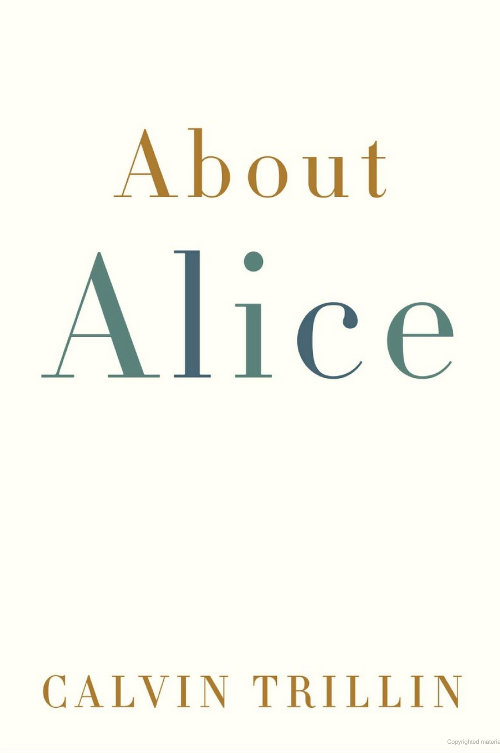
BOOK REVIEW: About Alice
December 11, 2017
ABOUT ALICE by Calvin Trillin
In 2001 writer and humorist Calvin Trillin lost his wife Alice to heart failure. They’d been married for thirty-six years, with all their friends always telling Calvin he’d been the lucky one. Just as I knew that with Carolyn, Calvin knew it with Alice. Just as I’ve chosen to do with Carolyn, Trillin wrote about Alice.
About Alice is more of a portrait: her intellect, depth of commitment to causes she believed in, her devotion to family. (Trillin wrote that Alice believed if you missed just one performance of your child’s school plays, the county will come and take your child away from you.)
Trillin does not dwell on his own devastation in losing Alice. You come to that understanding as he swiftly constructs his loving portrait so that when he writes of her sudden, unexpected death, you feel the same gut punch as he must have. The two of them had lived with the dark cloud of Alice’s cancer for twenty-five years, only to learn that the radiation used to hold cancer at bay had so weakened her cardio-vascular system that only a heart transplant would have saved her.
By writing so glowingly and deferentially about Alice, Trillin conveys the sense of pride, honor and great fortune he had experienced throughout his marriage. Losing her could not take away the wonderful and meaningful years they’d shared. He wrote: When Alice died, I was going over the proofs of a novel about parking in New York—a subject so silly that I think I would have hesitated to submit the book to a publisher if she hadn’t, somewhat to her surprise, liked it. When the novel was published, the dedication said, “I wrote this for Alice. Actually, I wrote everything for Alice.
Perhaps writers have another tool in their box to cope with the loss of a spouse. Rather than withdraw into isolation, they can write their way through it and eventually out of it. Writers, whether they like to admit it, are self-analytical, self-centered, self-conscious and self-absorbed. And that’s on a good day with pen or keyboard. We also love irony. And the idea that spending what remains of your life as a widower writing about the Muse who inspired everything you’d ever written that was worth writing, has to be one of life’s great ironies. Even though we are the ones left behind, we have no doubt who has been, in fact, the luckiest.



Be the first to comment